12mo (128x74 mm); leg. in piena pergamena, con titolo manoscritto al dorso, tracce di legacci tagliati, capitelli; pp. (18), 501, (30); inc. al frontespizio con marca dei Gesuiti, capilettera e finalini inc. in legno. Rarissima edizione di Sant'Omero (risultano invece più comuni le prime edizioni di Lione, apud Horatium Cardon, e di Roma, apud Iacobum Mascardum, entrambe del 1617) del testo scolastico in latino a cura del famoso storico gesuita Famiano Strada (1572-1679), meglio conosciuto per il De Bello Belgico, anche se quest'opera lo rese altrettanto popolare. Trattasi di una raccolta di conferenze, tenute al Collegium Romanum, sullo stile retorico e poetico e altri argomenti letterari. Il libro è ora ricordato per due diverse poesie neolatine in un concorso immaginario, presumibilmente sotto il patrocinio di Leone X, in cui famose figure rinascimentali appaiono in veste di poeti romani. Pietro Bembo appare come Lucrezio, e il poema datogli da Strada ha un posto minore nella preistoria delle telecomunicazioni come anticipazione del telegrafo elettrico. Baldassare Castiglione appare come Claudiano, e la sua poesia, la gara tra il musicista e l'usignolo, è diventato più famosa di qualsiasi opera di Claudiano stesso. Di quest'opera ci sono due belle, ma molto diverse, imitazioni contemporanee in lingua inglese, la prima a cura di John Ford, The Lover's Melancholy (1629), l'altra a cura di Richard Crashaw, Music's Duel. Prov.: Indicazione di appartenenza al frontespizio con nome illeggibile e data 1630. Rif.: Edizione non censita da ICCU, che invece registra l'edizione di Roma del 1617 (IT\ICCU\TO0E\001497) e quella di Lione sempre del 1617 (IT\ICCU\UBOE\005898). OCLC, 459097790. Cond.: Lieve brunitura delle pagine dovuta alla normale patina del tempo; opera in condizioni generali molto buone. -- Rare Saint-Omer edition of the Latin schoolbook, first published in 1617, by the famous Jesuit historian Famiano Strada (1572-1679), best known for De Bello Belgico (1632), even though these lectures, on style and criticism and other literary topics, at the Collegium Romanum, were also very popular. The book is now remembered for two of several neolatin poems in an imaginary pageant supposedly under the patronage of Leo X, in which notable Renaissance figures appear in the guise of Roman poets (II, 5-6). Pietro Bembo appears as Lucretius, and the poem given to him by Strada has a minor place in the prehistory of telecommunications as an anticipation of the electric telegraph (Sir Thomas Browne tried it, but found it didn't work - Pseudoxia II, 3). Baldassare Castiglione appears as Claudian, and his poem, the contest between the musician and the nightingale, became better known than anything by Claudian himself. There are two fine, but very different, contemporary imitations in English, the first by John Ford in The Lover's Melancholy (1629), the other by Richard Crashaw, as Music's Duel. Cf. Gordon, Lucretius, 303-7 (who does not know this edition). Ownership entry on title-page dated 1630. Contemp. overlapping vellum (somewhat browning). Light browning at leaves, due to usual patina of time; copy in very good condition.
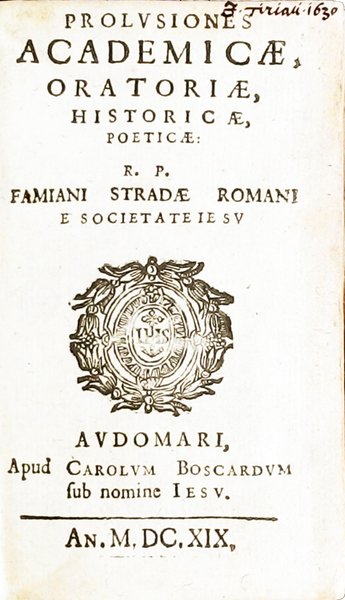
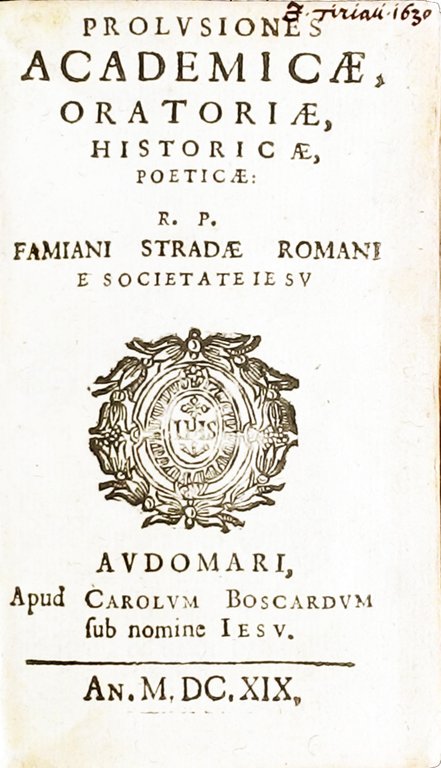
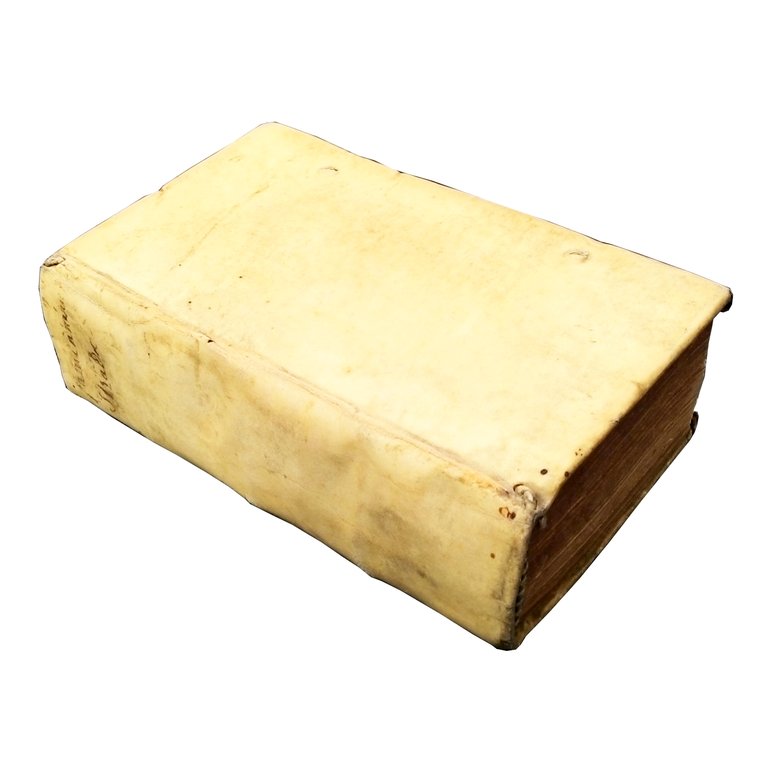
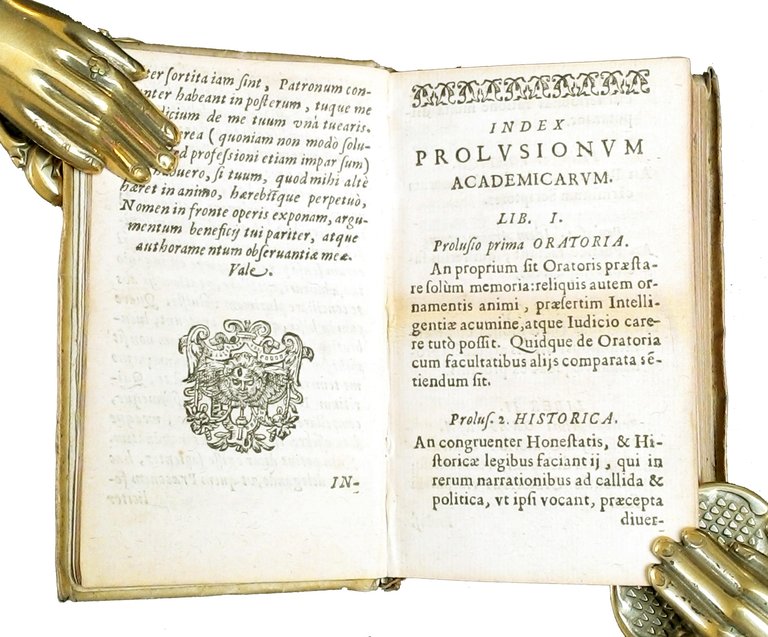
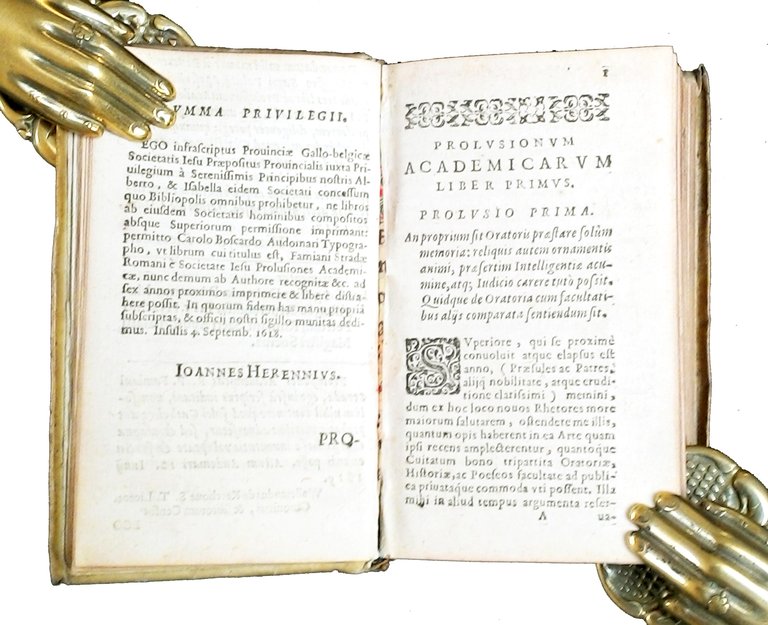
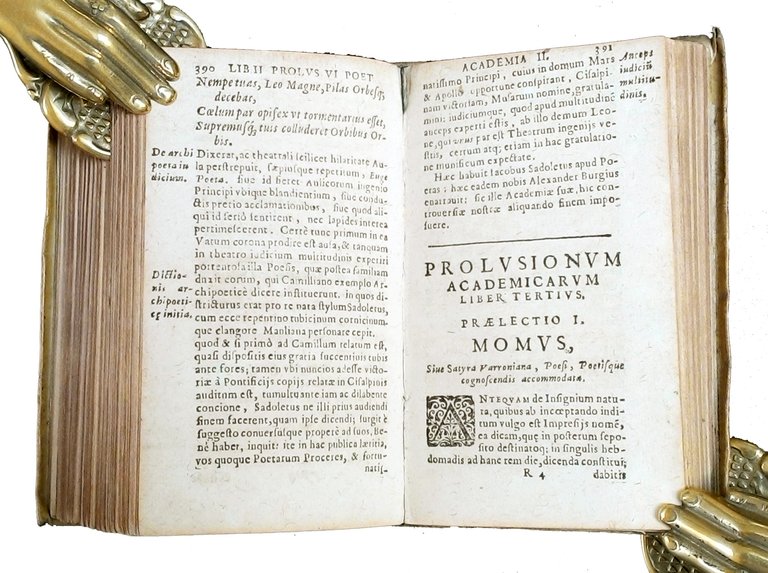
Découvrez comment utiliser
Découvrez comment utiliser

